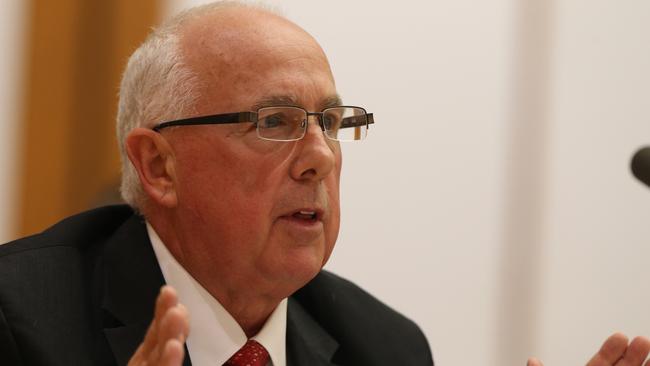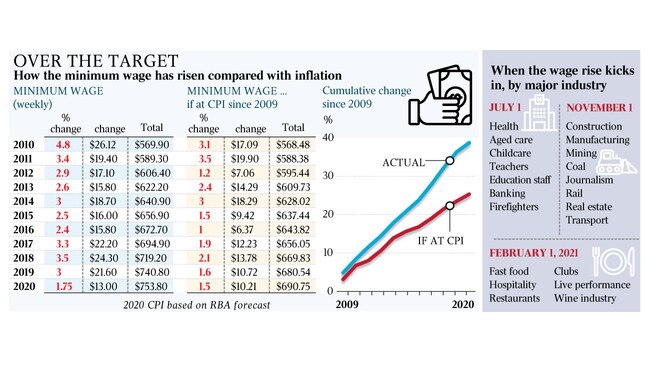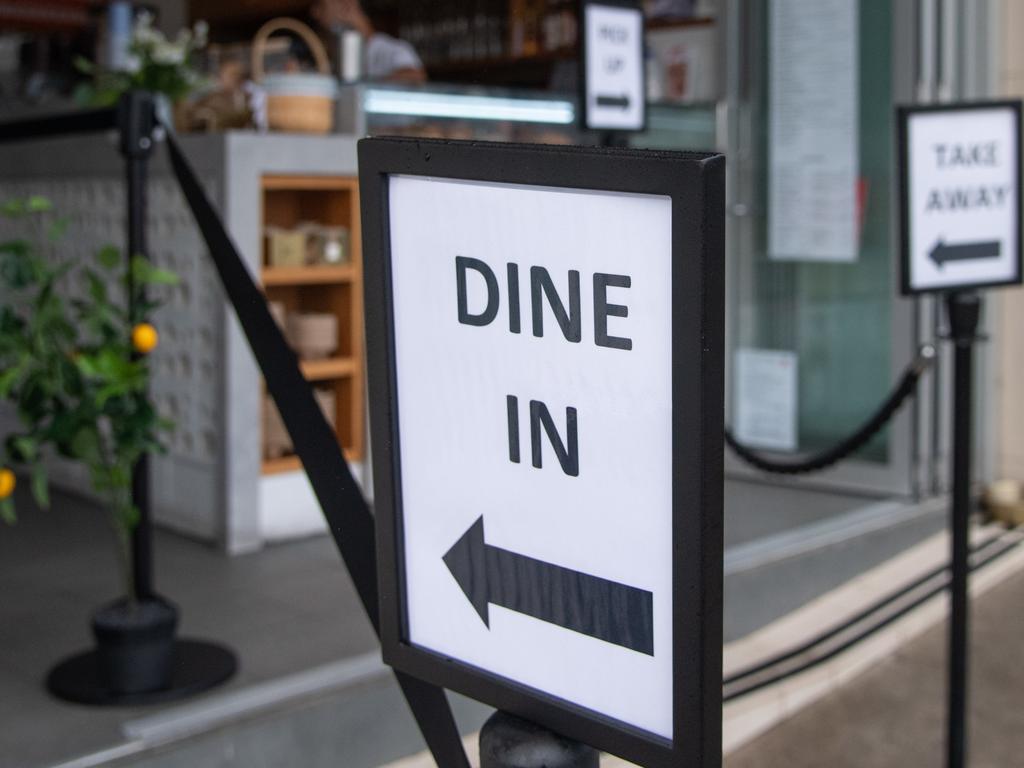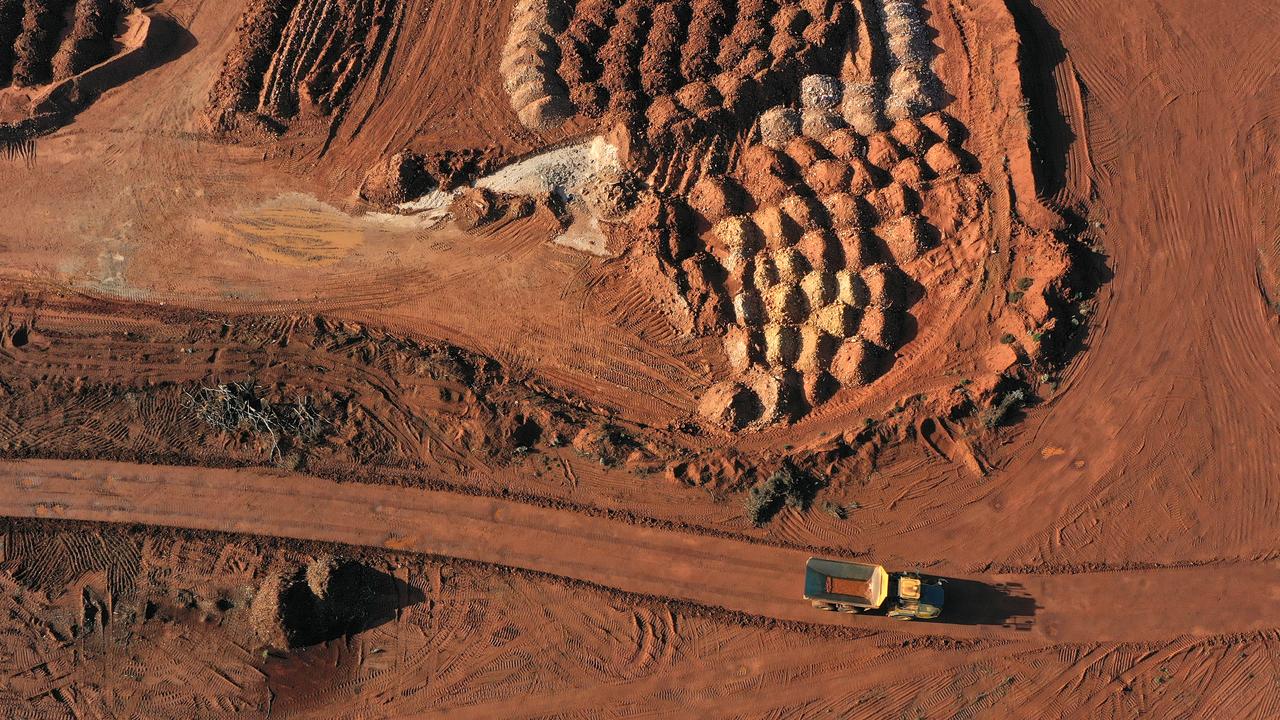Fair Work Commission awards $13 a week rise in national minimum wage
The raise for 2.2 million workers will be staggered across different industries depending on how they have been impacted by the COVID-19 increase.

Employers have warned that the Fair Work Commission’s decision not to impose a minimum wage freeze was an “assault on small business” and a “dangerous misstep”, given the risk to jobs as the economy fights to emerge from the COVID-19 crisis.
In the first split wage panel decision in 23 years, a commission majority, led by president Iain Ross, awarded a $13/week increase in minimum and award wages, but staggered the operative date over seven months to try to provide some relief for stressed industries.
Business seized on a minority decision by professor Mark Wooden, who backed a 12-month pay freeze, saying the split decision highlighted the “risks and uncertainties” associated with increasing the wages of 2.2 million low-paid and award-reliant workers.
The 1.75 per cent increase is less than half of the ACTU’s $30/week claim, and lifts the new minimum hourly rate to $19.84 or $753.80 per week.

Frontline healthcare, childcare and essential service workers will be among those that will receive an increase from July 1 while a second group, which includes construction and manufacturing employees, will get their rise from November.
However, an estimated 700,000 workers in industries severely impacted by COVID-19, including fast food, hospitality, restaurants, aviation and live performance, will have to wait until February next year.
Industrial Relations Minister Christian Porter said the commission had done its level best to try to balance competing interests but the government would monitor the decision “very, very carefully”.
He said that February, when the 1.75 per cent pay rise became operative in distressed industries, was an important marker and the government would seek to get policy changes through its industrial relations working groups to benefit those industries.
Shop Distributive and Allied Employees Association national secretary Gerard Dwyer said the union would apply to the commission to have the last round of penalty rates cuts, due in July, deferred to next February to coincide with the delayed pay rise.
But Restaurant and Catering Australia chief executive Wes Lambert said restaurants could be hit by a “double whammy” next year when it faced increases in February and July. “It is unfathomable that at a time when more than 800,000 people are out of work that you would want to increase businesses costs anywhere in the economy at all during the 2020-21 financial year,” he said.
Steve Anastasiadis employs 150 workers across four restaurants in Sydney and said his business had been forced to defer a raft of payments and sent workers on paid leave before applying successfully to have them put on the JobKeeper scheme. “To add another burden to us come February if things don’t change drastically is just going to be another nail in the coffin, in my opinion,” he said.
“Business has been very tough … The city itself I don’t think is going to recover for at least two or three years, if it recovers at all.”
He said it would be “disastrous” when JobKeeper ended: “There’s going to be carnage.”
Australian Chamber of Commerce and Industry chief executive James Pearson said the decision would cost Australian businesses more than $1.4bn and was “a dangerous misstep as we attempt to recover from the employment and economic impacts of COVID-19”.
“Putting up the price of jobs when deflation is a strong possibility in the June quarter is nothing short of an assault on people running small businesses, and people on JobSeeker and on JobKeeper,” he said. “It defies common sense to yet again increase the highest minimum wage in the OECD.”
Australian Industry Group chief executive Innes Willox said the decision was “risky given that the economy is in recession, many businesses are struggling to survive, and unemployment and underemployment have increased sharply”.
“It will impact adversely both on hiring and firing decisions and on the opportunities faced by many seeking work or looking to increase their hours,” he said.
But ACTU secretary Sally McManus said the increase was very modest: “This panel of experts recognise that cutting wages in the middle of this crisis would be a disaster for working people and the economy and they have rejected the arguments put by some employers to effectively cut wages by freezing the minimum wage.”
The commission majority said economic circumstances and the uncertainty surrounding the pathway out of recession had led the panel to adopt a cautious approach to the quantum and timing of the increase. “A decision to grant no increase in this review would mean that the living standards of low-paid award-reliant employees would fall,” it said.
Professor Wooden said a zero change to the minimum wage would “do little damage to workers” but a small increase would impact on businesses.





To join the conversation, please log in. Don't have an account? Register
Join the conversation, you are commenting as Logout